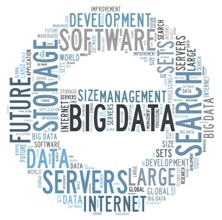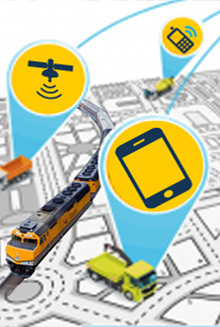Businesses have always used data for preparing reports, analyzing trends and making forecasts. Today, when the concept of Big Data is becoming increasingly popular, owing to its application in various sectors for improving operational efficiency and saving costs, organisations are also harnessing it for restructuring business models. Big data unfurls a treasure trove of data tapped from various channels, both internal and external. This information, when analyzed, offers meaningful insights relevant to various aspects of business.Actionable insights not only help businesses improve their offerings, but also highlight deviations in their processes. This helps organisations make informed decisions, and enhance customer experience. A deeper understanding of the various business processes, coupled with the information gained by analyzing Big Data, prompts organisations to re-examine existing procedures with a view to plug loop holes. Also, since Big Data taps in different sources of information to ensure that companies get a pragmatic view of the situation, businesses can use their findings to encourage process innovation.
Today, every transaction or interaction generates new data to be processed and draw inferences from. The evolution of Big Data has made it easier to collect, process, and analyze various forms of structured and unstructured data. Thus, organizations can use the insights thus gained for increasing efficiency of both technical and business endeavours. Data-driven intelligence can be leveraged for driving process innovation, like:
- Companies in the healthcare sector can analyze the data streaming in from patient monitors across locations/branches on a real-time basis for predicting a crisis by identifying subtle signs and taking proactive measures in time to prevent the same.
- Organisations offering professional services can take a new approach to ensuring better customer experience by gaining insights into customer emotions through advanced analytics and modelling.
- Insurance providers can migrate onto a different pricing model created on the basis of individual behaviour and risk factor, improving customer satisfaction.
Rethinking on old processes can help companies change for the better. A new outlook and framework would not only help them adapt to market changes better, but also ensure better control over procedures through increased transparency.
Moreover, as the internet makes the world come closer, leveraging connected machines, social media platforms, unified communications and intelligent devices for data becomes easier. Big Data helps organisations review the way they work in new light. With the right set of tools, technology, infrastructure and people, businesses can ensure that the right solution/ product/ person is available at the right place at the right time, thus reinventing their processes to yield better results.
Until a few years back, organisations only had limited information to base their decisions on. Today, however, Big Data has ushered in a new era of analytics. Aided with volumes of relevant, analysed data, businesses now have clear idea of what and how much needs to change, which ensures that they can have a well-devised plan of action for implementing changes in their functions and processes. But although Big Data drives process innovation by reinstating the positive outcomes, relationship between the two is symbiotic – tapping Big Data leads to process innovation and process innovation generates more information to be harnessed by Big Data.

Bhawna is a former Happiest Mind and this content was created and published during her tenure.






